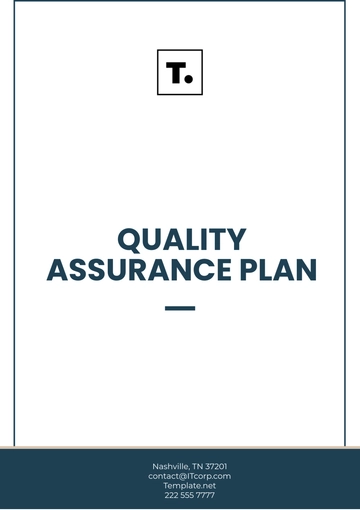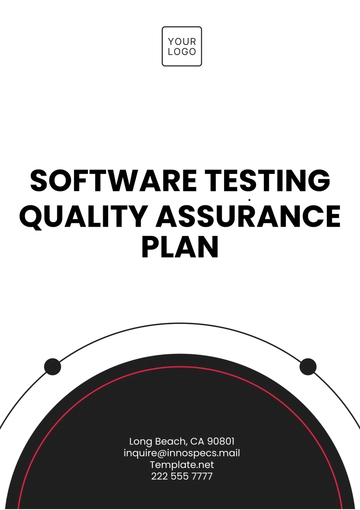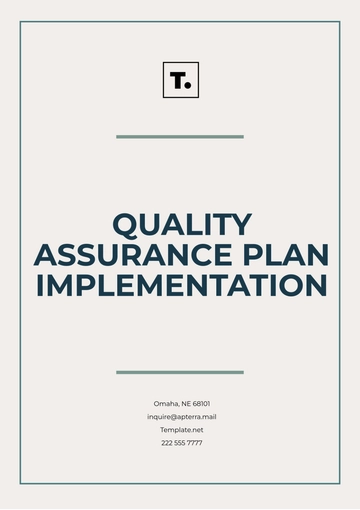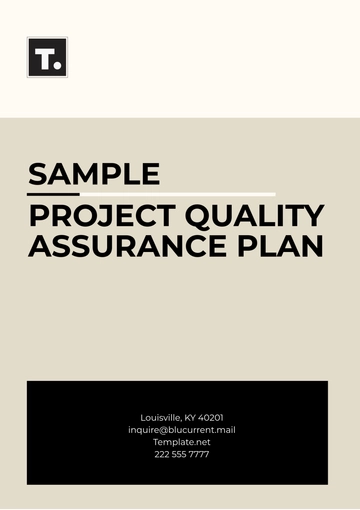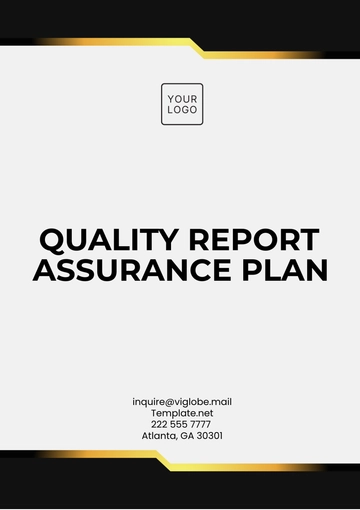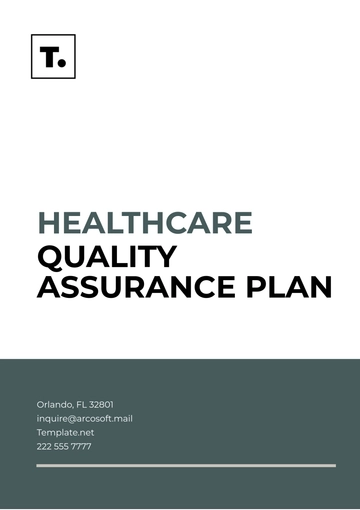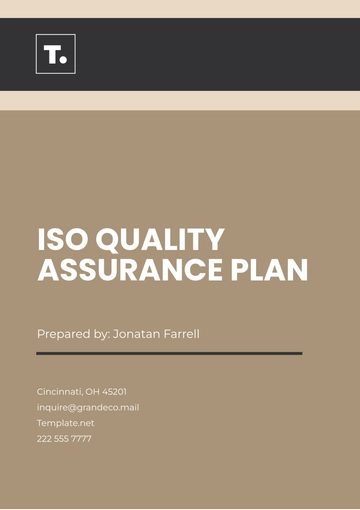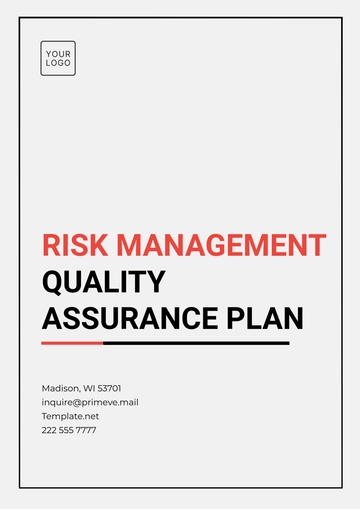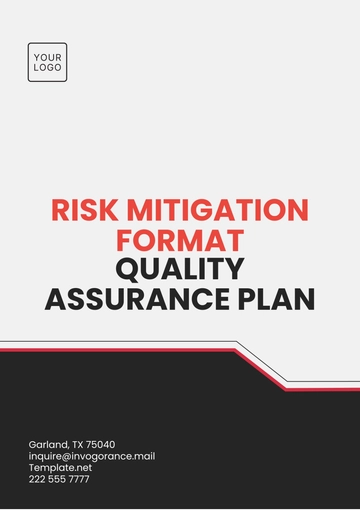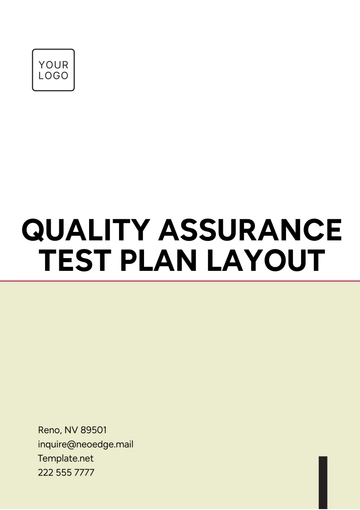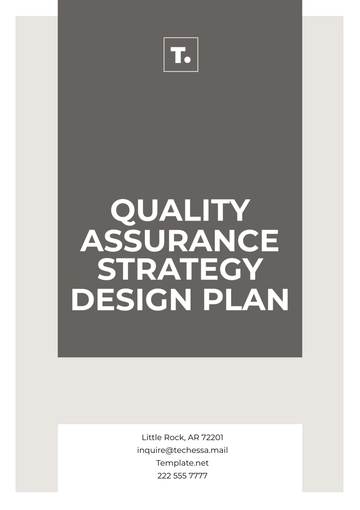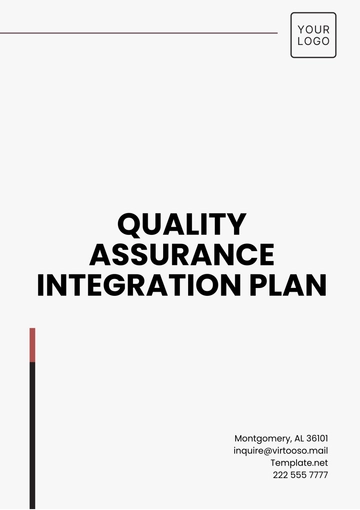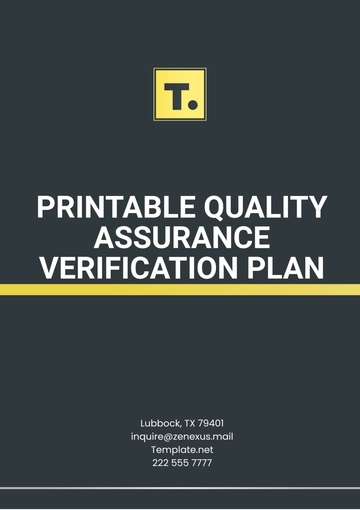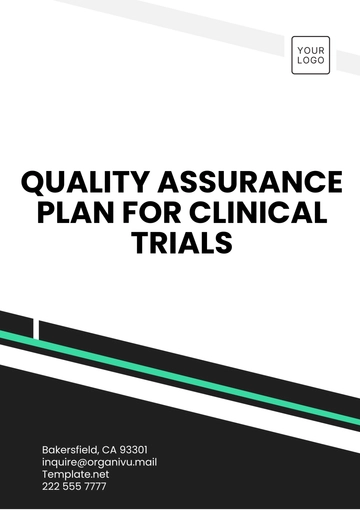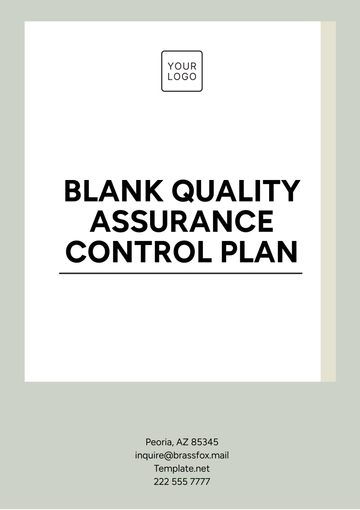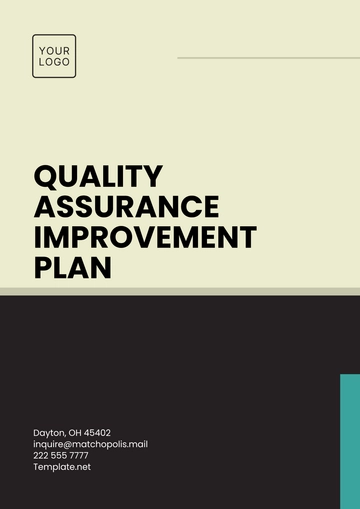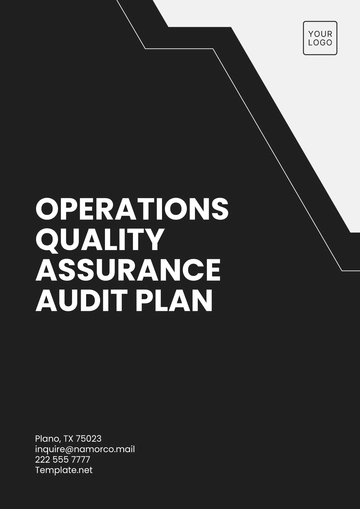Free Quality Assurance Plan for Clinical Trials
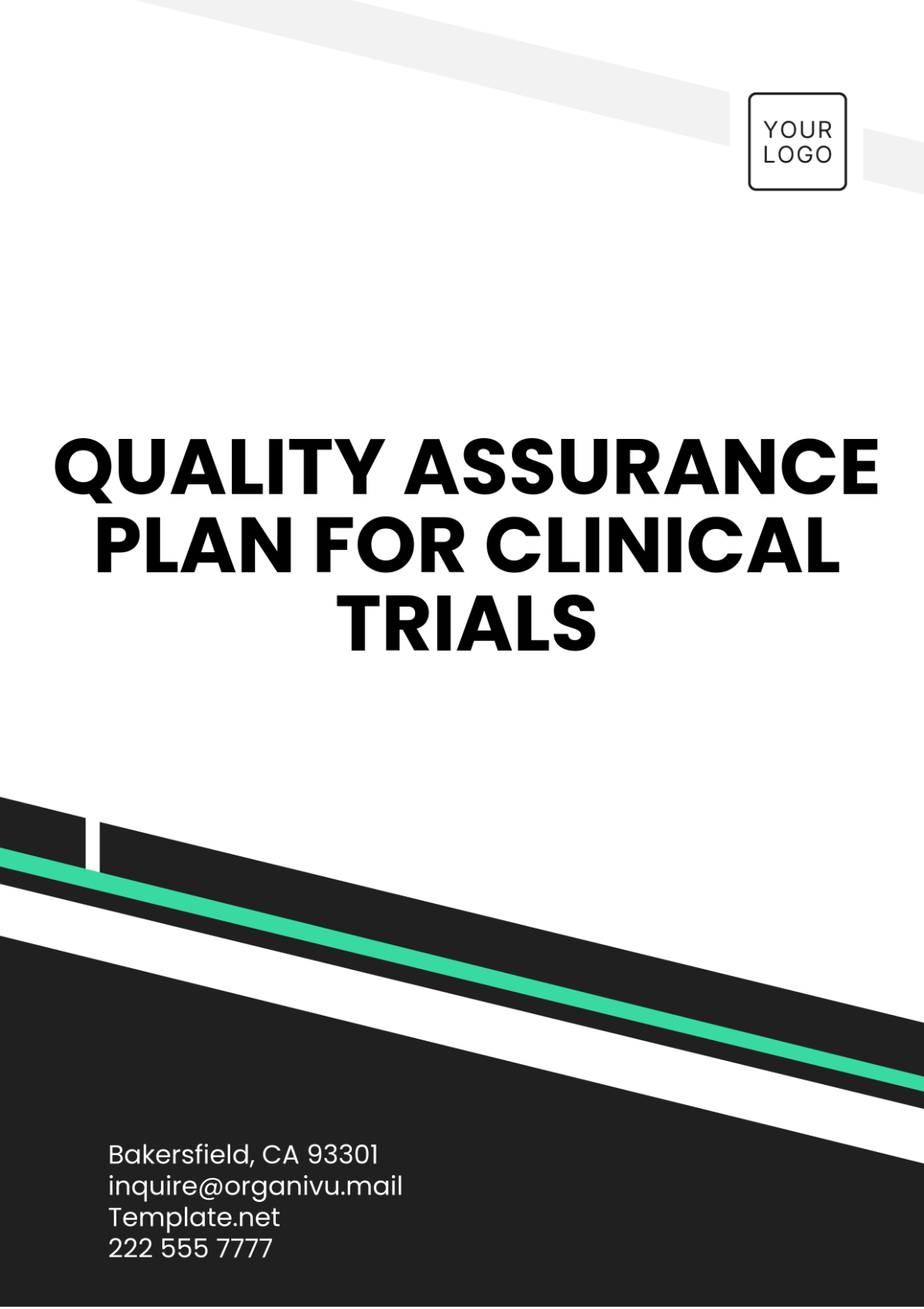
Prepared by:
[Your Name]
[Your Company Name]
1. Introduction
The Quality Assurance (QA) Plan for the clinical trial titled "Investigating the Efficacy of XYZ Drug in Patients with ABC Condition" outlines the framework designed to ensure the integrity, reliability, and regulatory compliance of the trial. This plan adheres to Good Clinical Practice (GCP) guidelines and aims to safeguard participant safety while maintaining the highest standards of data quality.
2. Objectives
Ensure compliance with applicable regulatory requirements and GCP.
Maintain data integrity throughout the clinical trial.
Identify and mitigate risks associated with trial processes.
Enhance the skills and knowledge of trial personnel through comprehensive training and support.
Facilitate effective communication among all stakeholders regarding quality assurance activities.
3. Scope
This QA Plan applies to all phases of the clinical trial, encompassing:
Trial design and protocol development.
Participant recruitment and informed consent.
Data collection, management, and analysis.
Site monitoring and audits.
Reporting and documentation.
4. Responsibilities
4.1 QA Team
The QA team is responsible for the overall implementation and maintenance of the QA Plan. Key responsibilities include:
Developing and updating the QA Plan.
Conducting training sessions for trial personnel.
Performing regular audits of trial activities and documentation.
Coordinating corrective actions as necessary.
4.2 Clinical Investigators and Staff
Clinical investigators and trial staff are responsible for:
Adhering to the procedures outlined in the QA Plan.
Completing required training and demonstrating competency.
Reporting any deviations from protocols and quality assurance procedures.
5. Quality Assurance Activities
5.1 Training
Initial Training: All trial personnel will receive comprehensive training on GCP, the study protocol, and QA procedures before initiating any study activities.
Ongoing Training: Periodic refresher training will be provided to ensure continued compliance and awareness of any updates or changes to the QA Plan.
5.2 Monitoring and Auditing
Site Monitoring: Regular monitoring visits will be conducted to ensure compliance with the study protocol, regulatory requirements, and the QA Plan, focusing on the informed consent process, data accuracy and completeness, and adherence to eligibility criteria.
Audits: Comprehensive audits will be performed at regular intervals to assess the effectiveness of the QA Plan and identify areas for improvement, covering data management processes, site compliance with the protocol, and overall quality management systems.
6. Risk Management
6.1 Risk Assessment
A risk assessment will be conducted at the outset of the trial to identify potential risks to data quality and participant safety. The assessment will include:
Evaluating the complexity of trial procedures
Identifying areas prone to errors or non-compliance
Determining the impact of potential risks on trial outcomes
6.2 Risk Mitigation Strategies
For each identified risk, mitigation strategies will be developed, including:
Enhanced training for trial staff on specific risk areas.
Increased frequency of monitoring visits in high-risk areas.
Implementation of corrective actions for any identified issues.
7. Corrective and Preventive Actions
In the event of deviations from the QA Plan or protocol:
Investigation: An immediate investigation will be initiated to determine the root cause of the deviation.
Corrective Actions: Appropriate corrective actions will be implemented to rectify the deviation.
Preventive Actions: Steps will be taken to prevent recurrence, which may include additional training, process modifications, or increased oversight.
8. Communication and Reporting
Regular communication will be established among all stakeholders, including:
Monthly QA Meetings: To review QA activities, monitor progress, and address any concerns.
Reporting to Regulatory Authorities: Timely reporting of significant deviations, audits, and findings as required by regulatory agencies.
9. Conclusion
This Quality Assurance Plan is structured to ensure that the clinical trial is conducted to the highest standards of quality, integrity, and compliance. Through diligent monitoring, comprehensive training, and strict adherence to established protocols, the QA Plan aims to protect participant safety and ensure the reliability of trial outcomes.
- 100% Customizable, free editor
- Access 1 Million+ Templates, photo’s & graphics
- Download or share as a template
- Click and replace photos, graphics, text, backgrounds
- Resize, crop, AI write & more
- Access advanced editor
Streamline your clinical trial processes with the Quality Assurance Plan for Clinical Trials Template from Template.net. This editable and customizable template provides a comprehensive framework for ensuring compliance and quality in your trials. Easily modify it to meet your specific requirements using our AI Editor Tool, ensuring your plan enhances efficiency and supports regulatory standards.
You may also like
- Finance Plan
- Construction Plan
- Sales Plan
- Development Plan
- Career Plan
- Budget Plan
- HR Plan
- Education Plan
- Transition Plan
- Work Plan
- Training Plan
- Communication Plan
- Operation Plan
- Health And Safety Plan
- Strategy Plan
- Professional Development Plan
- Advertising Plan
- Risk Management Plan
- Restaurant Plan
- School Plan
- Nursing Home Patient Care Plan
- Nursing Care Plan
- Plan Event
- Startup Plan
- Social Media Plan
- Staffing Plan
- Annual Plan
- Content Plan
- Payment Plan
- Implementation Plan
- Hotel Plan
- Workout Plan
- Accounting Plan
- Campaign Plan
- Essay Plan
- 30 60 90 Day Plan
- Research Plan
- Recruitment Plan
- 90 Day Plan
- Quarterly Plan
- Emergency Plan
- 5 Year Plan
- Gym Plan
- Personal Plan
- IT and Software Plan
- Treatment Plan
- Real Estate Plan
- Law Firm Plan
- Healthcare Plan
- Improvement Plan
- Media Plan
- 5 Year Business Plan
- Learning Plan
- Marketing Campaign Plan
- Travel Agency Plan
- Cleaning Services Plan
- Interior Design Plan
- Performance Plan
- PR Plan
- Birth Plan
- Life Plan
- SEO Plan
- Disaster Recovery Plan
- Continuity Plan
- Launch Plan
- Legal Plan
- Behavior Plan
- Performance Improvement Plan
- Salon Plan
- Security Plan
- Security Management Plan
- Employee Development Plan
- Quality Plan
- Service Improvement Plan
- Growth Plan
- Incident Response Plan
- Basketball Plan
- Emergency Action Plan
- Product Launch Plan
- Spa Plan
- Employee Training Plan
- Data Analysis Plan
- Employee Action Plan
- Territory Plan
- Audit Plan
- Classroom Plan
- Activity Plan
- Parenting Plan
- Care Plan
- Project Execution Plan
- Exercise Plan
- Internship Plan
- Software Development Plan
- Continuous Improvement Plan
- Leave Plan
- 90 Day Sales Plan
- Advertising Agency Plan
- Employee Transition Plan
- Smart Action Plan
- Workplace Safety Plan
- Behavior Change Plan
- Contingency Plan
- Continuity of Operations Plan
- Health Plan
- Quality Control Plan
- Self Plan
- Sports Development Plan
- Change Management Plan
- Ecommerce Plan
- Personal Financial Plan
- Process Improvement Plan
- 30-60-90 Day Sales Plan
- Crisis Management Plan
- Engagement Plan
- Execution Plan
- Pandemic Plan
- Quality Assurance Plan
- Service Continuity Plan
- Agile Project Plan
- Fundraising Plan
- Job Transition Plan
- Asset Maintenance Plan
- Maintenance Plan
- Software Test Plan
- Staff Training and Development Plan
- 3 Year Plan
- Brand Activation Plan
- Release Plan
- Resource Plan
- Risk Mitigation Plan
- Teacher Plan
- 30 60 90 Day Plan for New Manager
- Food Safety Plan
- Food Truck Plan
- Hiring Plan
- Quality Management Plan
- Wellness Plan
- Behavior Intervention Plan
- Bonus Plan
- Investment Plan
- Maternity Leave Plan
- Pandemic Response Plan
- Succession Planning
- Coaching Plan
- Configuration Management Plan
- Remote Work Plan
- Self Care Plan
- Teaching Plan
- 100-Day Plan
- HACCP Plan
- Student Plan
- Sustainability Plan
- 30 60 90 Day Plan for Interview
- Access Plan
- Site Specific Safety Plan
